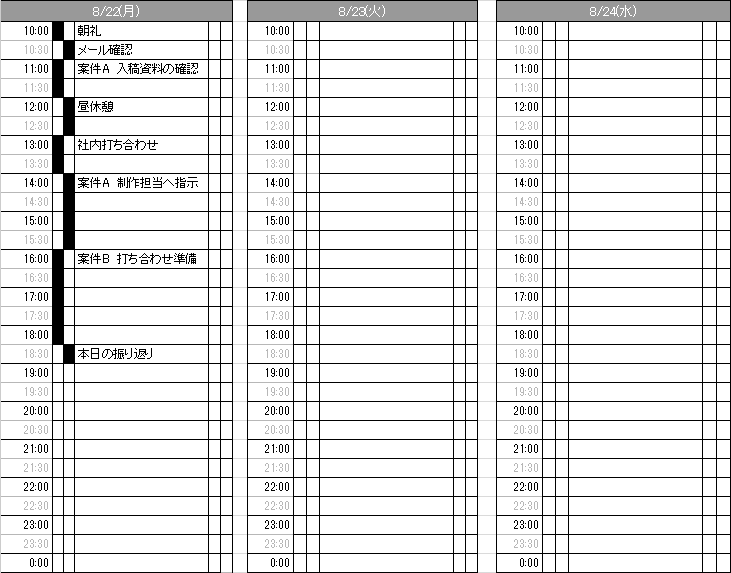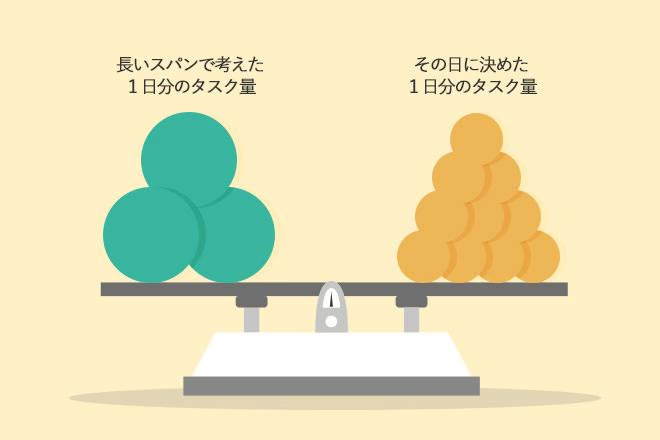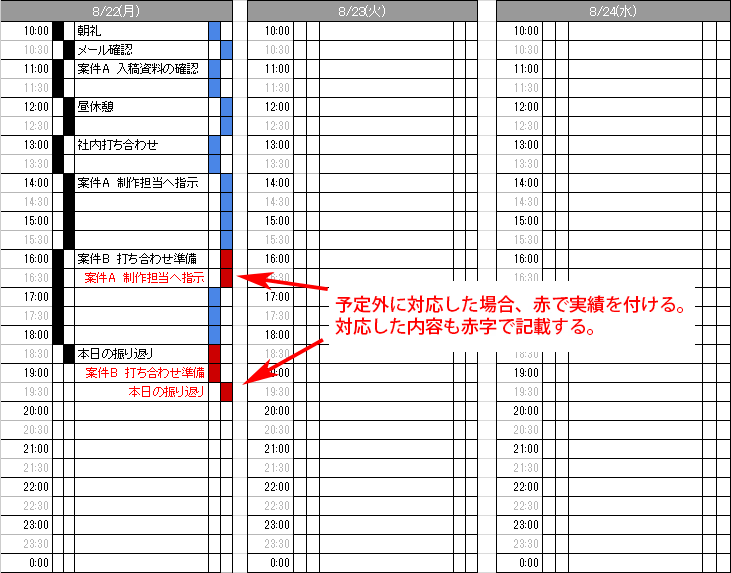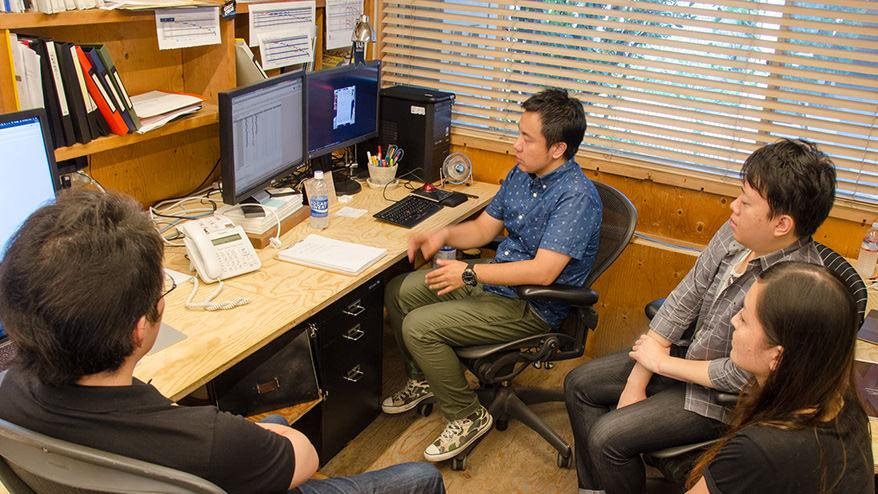Hello, I'm Director Oyabuchi.
I previously talked about how I create a project schedule , but this time I would like to talk about my own daily schedule, which is an essential core of my daily work.
I would like to share with you what I think about throughout my daily schedule and how I apply it to my work.
How to plan your day
When I come to work in the morning, the first thing I do is plan my schedule for the day. I do this every morning.

I made a schedule for Monday, August 22nd.
The format is to schedule by the hour, such as handling ○○ from ○○ to ○○.
The "Project Schedule" and "Weekly Schedule" serve as guidelines for determining your daily schedule.
A project schedule is a series of steps from the start to the end of a project.
The weekly schedule is based on the project schedule and determines what I will do and how many hours I will spend on each day for the week. It is a little rougher than the daily schedule.
In the project schedule, you check what phase the project is currently in and what needs to be done, and in the weekly schedule, you organize the specific time periods for doing so and then plan the schedule for each day.
The basic approach is to create your daily schedule based on this long-term schedule.
However, on the other hand, when creating a long-term schedule, it is also necessary to have some idea of what you will do each day. If you are unable to complete what you planned in one day, the project schedule will be pushed back accordingly, and you may have to reschedule.
It is important to balance the amount of tasks you consider for each day when creating your long-term schedule with the amount of tasks you decide for each day.

It's important to think about balance when planning your schedule.
Schedule report meeting every morning within the team
In the direction team that I belong to, once each person plans their daily schedule, we hold a schedule report meeting within the team.
Since directors often handle multiple projects, sudden meetings and tasks often come up, and their daily schedules become more packed than expected.
By sharing what each person is up to today, if such a situation occurs, the team can discuss countermeasures, such as whether other members can step in to help.
We also use the daily schedule to improve the work efficiency of the entire direction team.
Check the performance of the day
The schedule you set for that day will be checked at the end of the day.

Tasks that were completed as planned are marked with blue, and tasks that were difficult to complete as planned are marked with red.
Whether or not you respond as planned, your track record will provide a guide for planning future events.
If the plan and the actual results differ, consider whether you can incorporate the delayed response into the plan for tomorrow and beyond. Also, by looking back and thinking about what kind of plan you should have made, you can create a more accurate schedule in the future.
Even if everything is going smoothly according to plan, you can think about whether there is something unexpected that can be done to improve quality in the future.
I believe that checking my performance every day is important in order to understand my current situation and consider future actions.
summary
To be honest, I used to be really bad at making schedules and often made mistakes while moving projects forward.
However, by planning my daily schedule in this way and practicing how to put it together, I feel that my work efficiency has gradually improved, to the point where my daily schedule has become an important central part of my work.
I feel that improving the accuracy of our schedules leads to better quality work.
You can start right away and see results, so why not give it a try as a daily schedule?

